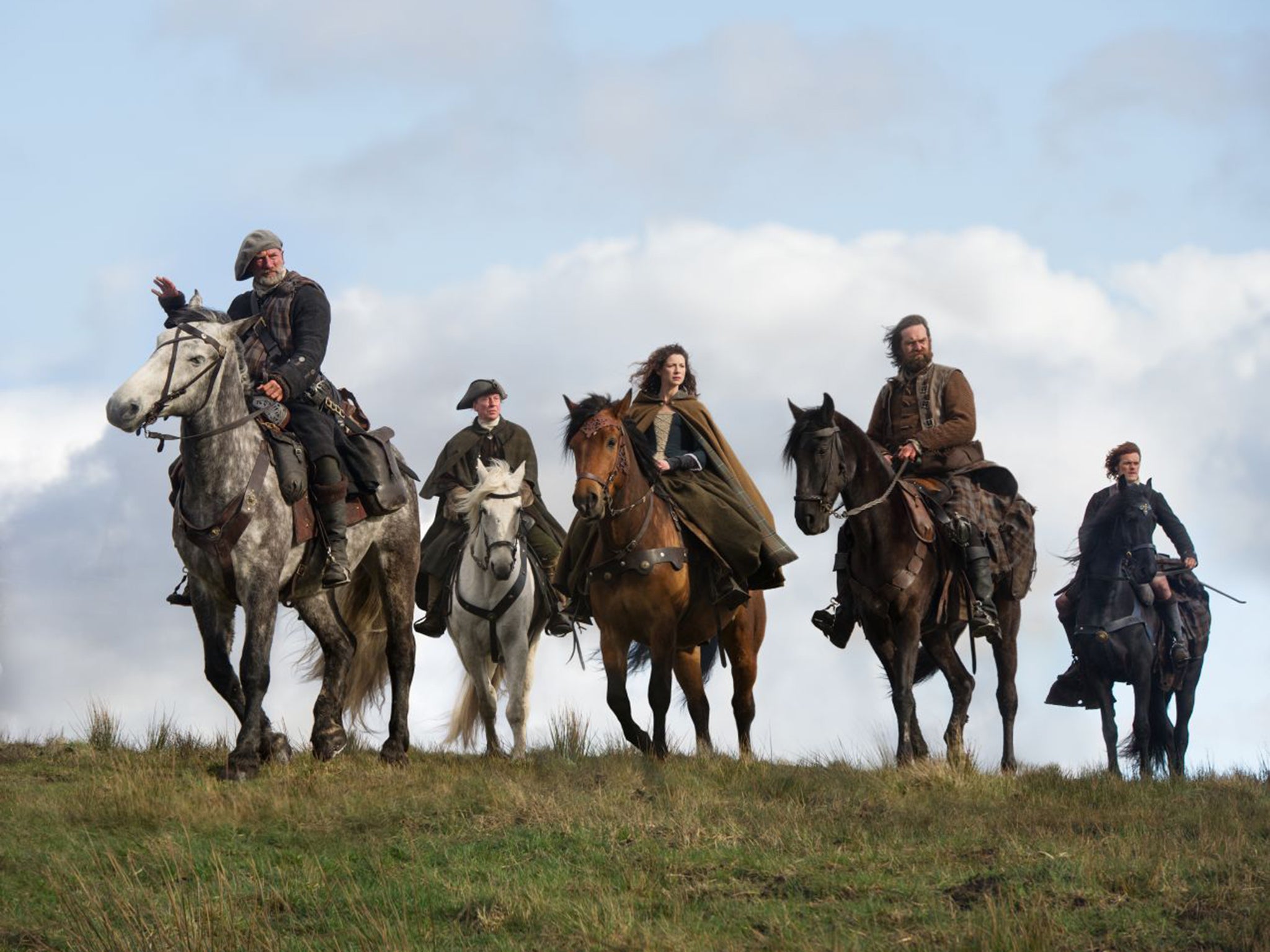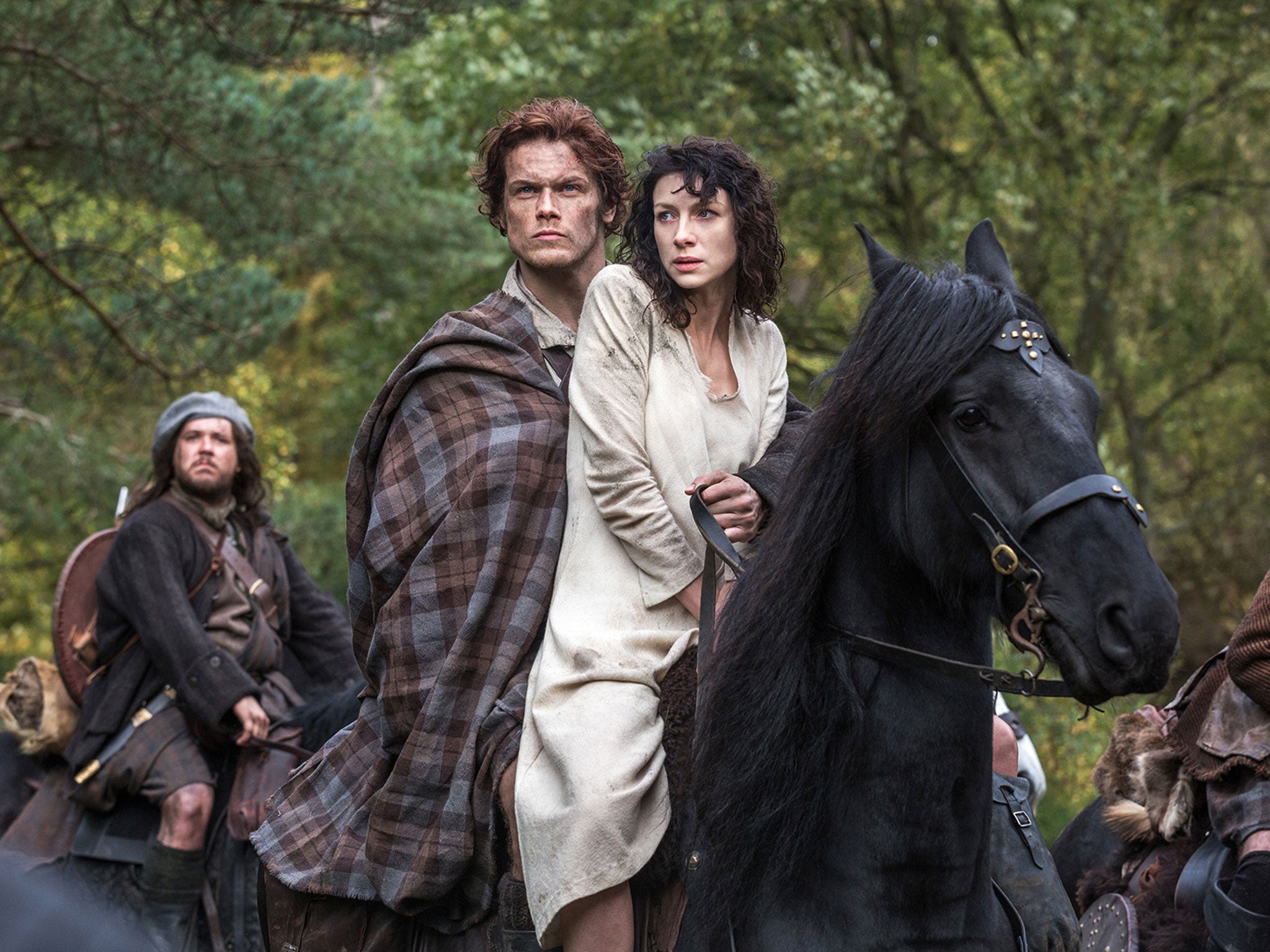Outlander is billed as the feminist Game of Thrones - so what's the secret of its success?
In the US, the first season was praised for its "lively, rich and emotionally satisfying" plotlines. In reality, Outlander owes its success to something altogether more primal, says Sarah Hughes

Your support helps us to tell the story
From reproductive rights to climate change to Big Tech, The Independent is on the ground when the story is developing. Whether it's investigating the financials of Elon Musk's pro-Trump PAC or producing our latest documentary, 'The A Word', which shines a light on the American women fighting for reproductive rights, we know how important it is to parse out the facts from the messaging.
At such a critical moment in US history, we need reporters on the ground. Your donation allows us to keep sending journalists to speak to both sides of the story.
The Independent is trusted by Americans across the entire political spectrum. And unlike many other quality news outlets, we choose not to lock Americans out of our reporting and analysis with paywalls. We believe quality journalism should be available to everyone, paid for by those who can afford it.
Your support makes all the difference.If the BBC's new take on Poldark has whetted your appetite for hot-blooded romance, strong female characters and the perfect male form (see Aidan Turner, the actor playing Ross Poldark, for details), then the fact that, as of next week, the online streaming service Amazon Prime Instant Video will be screening the cult TV show Outlander in the UK will make it even keener.
What exactly is the appeal? In the US, the first season, adapted by Battlestar Galactica creator Ronald D Moore from a series of best-selling novels by Diana Gabaldon, was praised for its "lively, rich and emotionally satisfying" plotlines and hailed as "the feminist answer to Game of Thrones". In reality, Outlander owes its success to something altogether more primal: as Orange is the New Black's Taystee memorably announced when pushing the book on her friend Poussey last season: "Yo, it's hot."
It is also possessed of the sort of plot that is hard to explain with a straight face. Essentially, Outlander is the tale of Claire Randall (played by Caitriona Balfe), a nurse in the recently ended Second World War who travels to Scotland for her honeymoon and, thanks to an encounter with a set of ancient standing stones, ends up travelling back in time to 1743 – two years before the second Jacobite rising. Adventure, trauma and a grand love affair ensue.
So far, so ludicrous, but Outlander exerts a mysterious pull, both in book and television form. In part that's because it's so unapologetic about the nature of lust. One of the most famous scenes in the book occurs during Claire's honeymoon when she's not backwards about asking her husband Frank to head southwards and give her pleasure. To fans' delight that scene made it through to the TV series. Similarly, it's clear from the start that Claire is more experienced than Jamie, her young Highland beau; this upends conventions, giving us a relationship in which the heroine openly ogles the hero. (As does the audience – it won't be long before Sam Heughan's bum has its own Tumblr.)
Yet while this very frank and very female gaze is undeniably fun, Outlander is more than a bit of Highland slap and tickle. Gabaldon's books are incredibly well-researched and Moore has ensured that he hews close to them (Gabaldon was also a consultant on the show); thus viewers are instantly pitched into a vividly realised world full of believable, well-drawn characters. Moore also has enough patience to take time setting out his story, recognising that if the emotional payouts later are to have any heft, then viewers must be fully immersed in the world in which they happen.
It helps too that Claire is no passive plaything, but a frank, funny woman with a keen sense of survival and a sharp mind. Meanwhile, Jamie might be a respected warrior but he is also solicitous, largely ego-free and in touch with his emotional side. It's a neat switch in which the hero is a virgin, often in danger, while the more experienced leading lady hitches up her skirts and rides to the rescue.

Most importantly, Outlander doesn't shy away from the darker elements of Gabaldon's tale. Claire might be riding around Scotland with a bunch of hot Highlanders, but the show makes it clear that this is not an easy place for anyone to survive, particularly a woman. Even the things that work in Claire's favour, such as her knowledge of medicine, can be used against her – why, queries one clan member, does she have this knowledge? The unspoken threat of accusations of witchcraft hangs heavy in the air.
And that ultimately is the key to Outlander's success: yes, it's a time-travelling, wish-fulfilment fantasy but it's done with such flair and attention to detail that it's impossible not to hop on board for the ride.
'Outlander' is released on Amazon Prime Instant Video on 26 March
Join our commenting forum
Join thought-provoking conversations, follow other Independent readers and see their replies
Comments